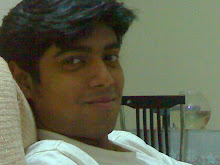NCERT woos Dalit writers
Published in DNA on January 11, 2006
Alex Haley, author of Roots, once said:"History has been written and stored predominantly by the winners." The National Council of Educational Research and Training (NCERT) wants to change that.
In a bid to sensitise students on the evils of the caste system that has plagued Hindu society for centuries, the council plans to introduce works of Dalit writers in school text books.
The project, to be executed in two phases, will include works of relatively unknown Dalit writers like Om Prakash Valmiki. The Class XI Hindi literature textbook will accommodate Valmiki's Khanabadosh. "Till date the NCERT has only had upper caste writers in the school curriculum. Even when it came to depicting the plight of the Dalits, we had to rely on works like Godan by Premchand, an upper caste man," says Ram Janam Sharma, head, Department of Languages, NCERT.
The council has now concluded that a Dalit's trauma is best told by a Dalit himself. "Hence, we have planned to include works by Dalit writers in the Hindi literature course in classes I, III, VI, IX and XII. Apart from Valmiki, we are planning to introduce works of writers like Jyotibha Phule," Sharma says.
There is a question mark on this move though. Is the council, plagued as it is by a string of controversies after the alleged saffronisation drive and distortion of history, opting for a populist move? "This is a welcome move only if the spirit is correct," says Rahul Rai, founder-director of the Indian Institute of Human Rights, New Delhi.
"Forget BIMARU states. Even Left-liberal West Bengal has a history of caste discrimination in primary education. Pratichi Education Trust's survey report on West Bengal's primary education mentions that 75 per cent of teachers belonging to higher and middle castes believe that children of SC and ST communities are less intelligent and less motivated than their upper caste counterparts. There is a need not just to caste-sensitise students, but teachers as well," adds Rai.
"In a village in Birbhum district in West Bengal," says Rai, "Brahmins were reportedly not sending their children to the Shishu Shiksha Kendra as they have to study with the low-born Dom children. There is need, therefore, for the oppressive history of Dalits to be made known and an attempt made to stop further caste oppression."
Among Dalit intellectuals, the move has evoked mixed response. The worry is, says Jyotirmoy Mondol, a Dalit activist who runs a school for Dalit children in Purulia district in West Bengal, this move by the NCERT smacks of populism.
"NCERT's saffronisation drive during the tenure of the NDA was not only anti-Muslim, but also anti-Dalit. To counter that, the present government wants to adopt a pro-Muslim/pro-Dalit stance. The Dalits have always been a reliable votebank for the Congress. They are simply playing to the gallery," he says.
"To let students become aware of centuries of oppression that Dalits had to face, a confessional history by the upper castes would have been more effective," Dalit writer Chandrabhan Prasad says. "In the US, writings by whites on racism have been taught for years. That helped reduce any opposition to the government's social justice schemes for the coloured people."
"Stories of Dalit oppression, written by Dalits themselves, may read like sob stories. Moreover, Dalit history is a serious subject. The NCERT should have consulted Dalit intellectuals and historians before undertaking such a move," Prasad says.


0 Comments:
Post a Comment
Subscribe to Post Comments [Atom]
<< Home